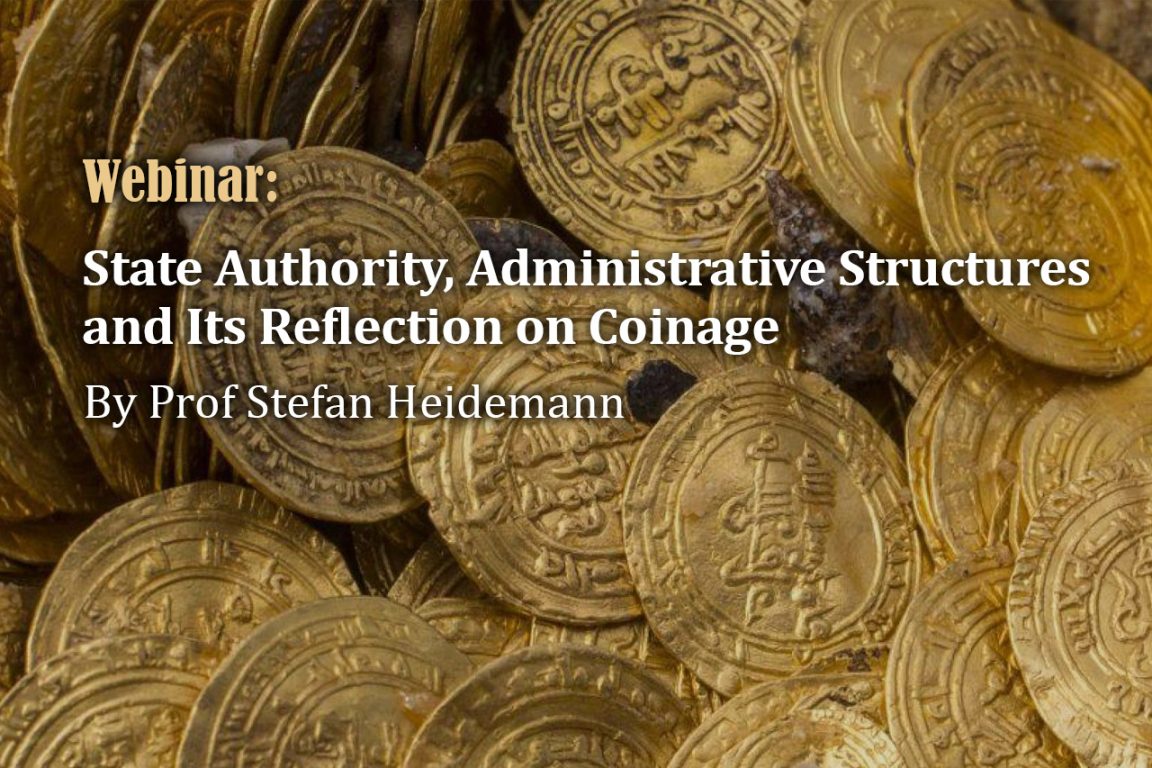Webinar: “State Authority, Administrative Structures and Its Reflection on Coinage”

About The Event
By Prof Stefan Heidemann
Date: Bi-weekly, Wednesday, 4 to 6 pm CET (Oct 31, 2018 – Jan 23, 2019)
The Webinar Initiative in Islamic Material Culture offers a webinar: “State Authority, Administrative Structures and Its Reflection on Coinage”.
For the period prior to the fifteenth century, historians of Islamic societies have few primary documents or archives at hand, and even less for the first three centuries of the Empire. Most documents are coming from Egypt and more and more are discovered in Khurāsān. But for the rest of the early Islamic world these documents are largely missing. Islamic coins are the most prolific epigraphic sources for pre-1500 history in the Middle East.
Nevertheless, their potential for understanding history is often neglected. Islamic coins as bearers of texts – there can be up to 150 words on one coin – are unique in the history of civilization. They offer the often needed primary independent evidence for administrative practices and state authority produced in the course of events. Their design includes numerous hints, which have to be decoded. The coin is able to serve different historiographic fields such as political, economic, industrial, social and legal history as well as Islamic art and material culture. As groups, coins constitute a source of their own – a sequence of changing texts generated from coins over the decades from a single mint can serve as narrative for local and imperial history.
Topics
Oct. 31, 2018 – Introduction: Terms and Terminology
Nov. 28, 2018 – Legal Concepts of Money, Its Social Function and the Function of Design for Coins
Dec. 5, 2018 – How to Read a Coin? Its Vocabulary.
Dec. 19, 2018 – Centralization and Local Production
Jan. 9, 2019 – Organizing a Major Mint in the Empire: The Case of Yaḥyā al-Harashī and Madīnat al-Jayy (Iṣfahān) in 162/778-9
Jan. 23, 2019 – Imperial Titulature on Sanjar’s Coinage – Imperial Authority from a Regional Perspective
The course is open to all advanced students in B.A., M.A., and PhD programs of Islamic studies, historians, art historians, and archaeologists of the Middle East. The complete syllabus and a reading list can be also downloaded here.
For more information and how to apply see: The Program in Islamic Material Culture


We're always eager to hear from you.
If you’d like to learn more about us or have a general comments and suggestions about the site, email us at